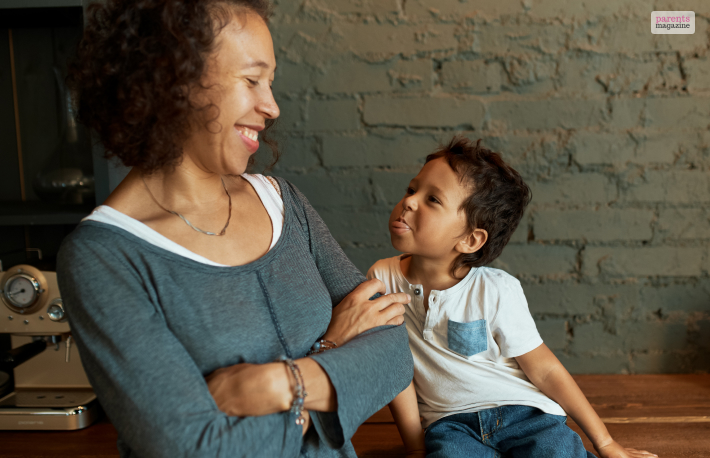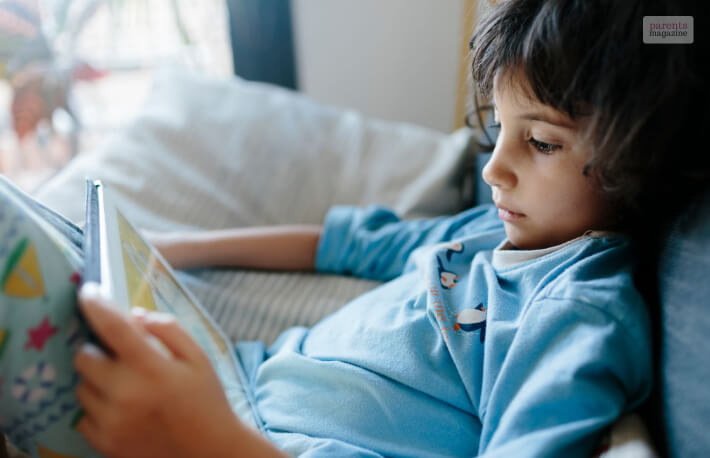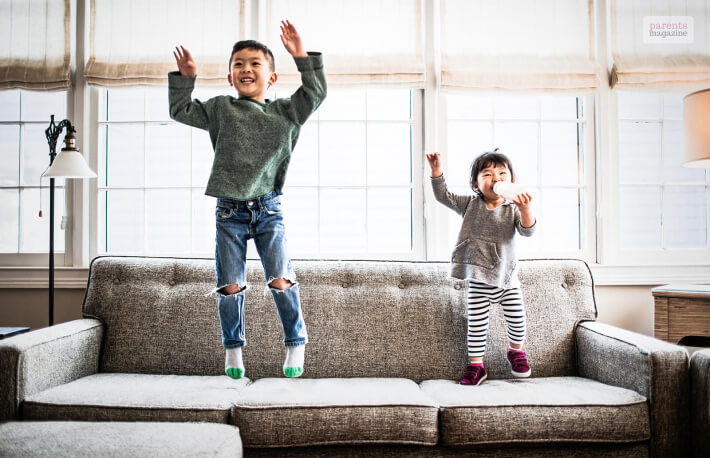
Exploring the Effects of Permissive Parenting on Child Development
If you have seen parents who are always letting their parents do whatever they want to do, then you have already met permissive parents. It’s a parenting style where parents have little to no rules and let their children do whatever they please.
Permissive parents have limited ground rules and allow their kids to choose what to eat, wear and when to do their chores or homework. It’s a practice where parents allow children more room for free thoughts to let individuality grow and the freedom of expression. This article outlines what this parenting style stands for and how parents can use it.
What is Permissive Parenting?

Permissive or indulgent parenting is a type where there is no consistency, there is a lack of structure, and there is no limit when it comes to discipline. This type of parenting allows their child a lot of freedom; they are very well aware of the emotional needs of their child and treat them as their friend.Permissive parents are extremely loving and often don’t follow any rules and guidelines. They treat them like kids and do not expect any mature behavior from them. They are the opposite of helicopter parents. Instead of tracking their every move, permissive parents let their children be and don’t make any effort to discipline them as they believe that kids will be kids.
The Basic Characteristics Of A Permissive Parent

A permissive parenting style shows very few expectations from their children. They do not demand anything from them. They do not expect that their child will show some self-control or maturity and very rarely discipline.
- Permissive parents are very much responsive toward their children. They are extremely loving and nurturing.
- Permissive parents almost never say no to their demands and often use food or toys to bribe them if they expect them to behave nicely.
- Permissive parents are very lenient and don’t like to practice control or authority over their little ones. They never monitor their behavior or guide them to behave properly with their friends, family, and others. Even if they have rules, they are not consistent about them.
- Permissive indulgent parenting has a way of its own. These types of parents don’t like an image as an authority figure. They are more like their friends.
- Permissive parents do not put any responsibility on their children, like an assignment to complete on time.
- They let their children make decisions that are meant for the parents to make just to give them freedom.
Every action has a consequence. Be it good or bad. Similarly, permissive parenting has good effects as well as bad effects.
Let’s Describe The Negative Effects:

Research has shown that permissive parenting is among the worst kind of parenting styles and has a lot of negative effects.
- Bad academic performance: Permissive parents generally don’t monitor their child’s learning habits. These children have very little self-discipline. Permissive parents would never ask their children to perform well or set a goal for them so they can work for it and achieve their goals. Research shows that children with permissive parents have lower academic success.
- Aggressive and impulsive: Permissive parents never exercise control over their child’s behavior. So they have less knowledge about what kind of behavior is acceptable around other people. They are very impulsive and cannot control their behavior when they are around other people. When put under stressful situations, they fail to control their temper and become aggressive.
- Prone to substance and alcohol abuse: Children who have permissive parents are associated with more likely to associate with crimes, alcohol-related issues, and substance abuse. They cannot control their impulses as they have never been rectified when they showed impulsive behavior as a child.
- Low ability to self-regulate: No child is born with emotional regulation. It is a skill they develop with time. Children who have permissive parents do not learn to control their activities, emotions, and behavior when they are supposed to learn those. They face difficulties in checking their actions when they grow up.
- Bad social skills: Children who are raised by permissive parents generally have bad social skills and are not very empathetic. They mostly portray anti-social behavior.
- Mostly overweight: permissive parents do not control their child’s eating habits. They are more prone to be overweight than any other kid.
Now, Let’s Look At The Positives:
Among all the bad effects, there are a few good effects of permissive parenting. Those are:
- These types of parents are very affectionate and considerate of their child’s feelings. They are very warm and affectionate towards their children.
- Some research shows that they are as protective as any other parent against substance abuse or alcohol abuse. They get care if they see any risky behavior.
- Studies also show that these kids have greater self-esteem.
How Does Permissive Parenting Compare to Other Styles?

A permissive parenting style makes it easier for children to thrive and grow up in a freer environment. On the other hand, several other parenting styles allow children little to zero authority and room for freedom. Here’s how permissive parenting styles compare to all the other parenting styles.
Authoritarian Parenting
While permissive parenting is all about giving children the freedom they deserve, authoritarian parents enforce strict rules and clarify their expectations. They often hold strong control over the lives of the children and allow really less autonomy in their children’s lives.
Authoritative Parenting
This is a less strict version of authoritarian parenting. These parents set strict rules and clear expectations. But they stay responsive to the needs of their children. They foster a room for open communication for their children while also giving the freedom for open communication.
Neglectful Parenting
An authoritative parent is overly involved in taking care of their child. A permissive parent lets their child have freedom while also responding to their needs. However, a neglectful parenting style lacks structure. Parents of this type show no room for support and guidance for their children.
The Psychological Impact on Children
the psychological impact of permissive parenting can be both negative and positive. Children raised under this parenting style often lack the ability to regulate their emotions. They may struggle with having low self-esteem since they hardly had guidance growing up.
However, it’s important to note the difference between a neglectful and a permissive parenting style. The negative psychological effects only start when the child has zero guidance in the name of freedom. On the other hand, the positive effects of a permissive parenting style can lead to several positive outcomes like a child having a strong self-esteem. Some of them have strong individual differences. Their sense of self is often strong, and they often build a strong sense of morality.
What can you do to change permissive parenting?

There are ways through which you can change your parenting style from permissive to authoritative. It might be difficult to see your child upset with you, but sometimes it is necessary.
- Develop some basic rules in the house. Your kids need to learn how to behave properly. To do that, you need to tell them what you expect from them.
- One of the greatest struggles can be trying to be suddenly firm when you are not. Tell your child why you have kept those rules.
- Rules mean nothing if there is no consequence for breaking those rules. Putting them in time out or losing screen time are some of the basic consequences they can face.
- If they are punished for breaking the rules, they should be rewarded as well for following them through. Appreciate their effort so they know you are there to support their good behavior.
Wrapping up!
This type of parenting can cause a lot of problems, and it is necessary to keep your child in check if you see them going the wrong way or adopting some bad behavior because you think it is just another harmless choice your kid is making.
Provide them with the correct structure and balance, where they can be disciplined as well as spoiled from time to time.
Have A Look:
Already have an account?
Sign In
Create your account
User added successfully. Log in









